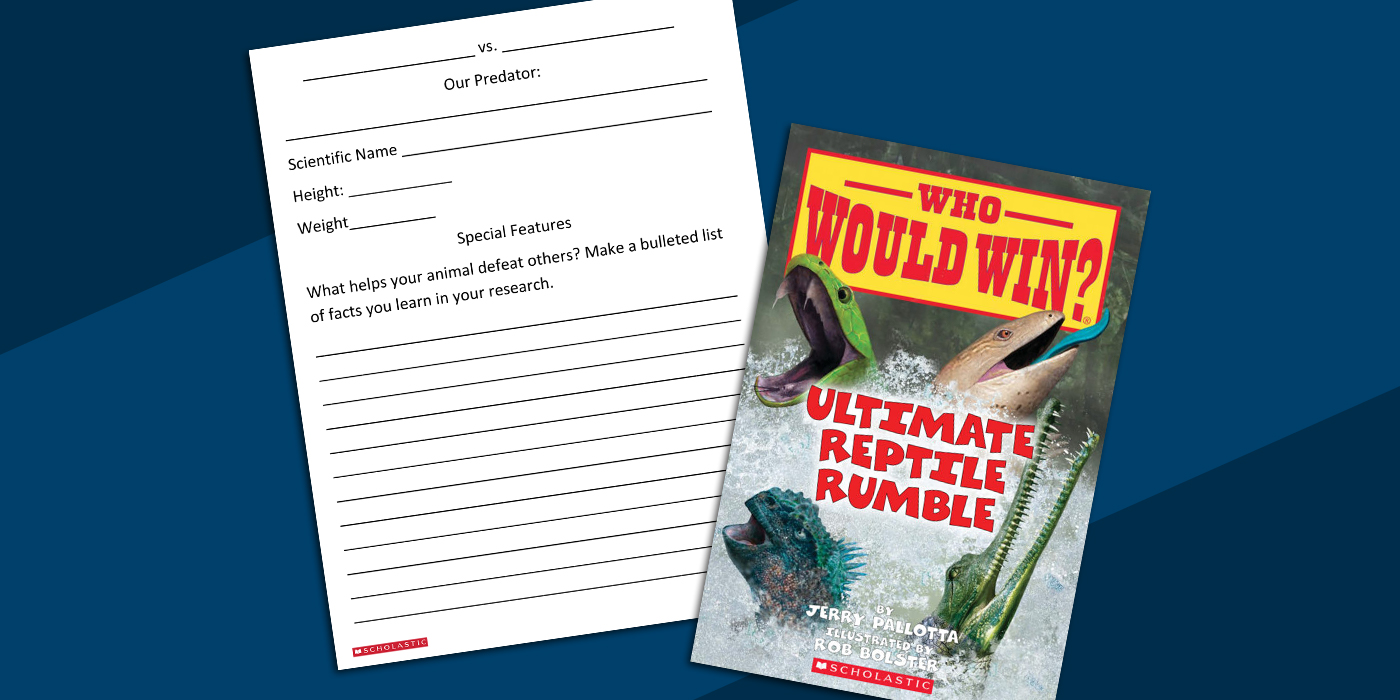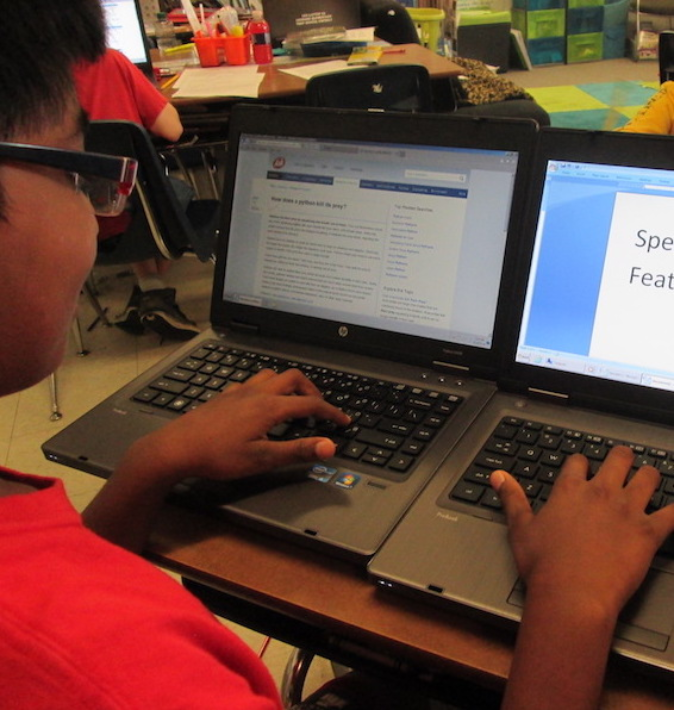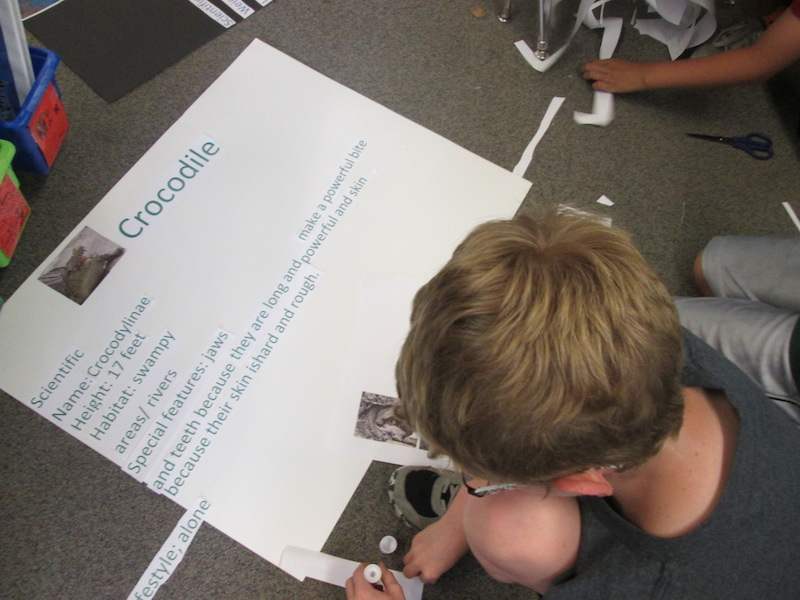If you are an elementary teacher, you are likely familiar with the wildly popular and engaging nonfiction series, Who Would Win. Even the most reluctant readers love the hypothetical battles between a pair of animals where the ultimate question, who would win?, is determined by a trait that makes one animal stronger or faster than the other. The most thrilling recent matchups (from dozens of head-to-heads) include Walrus vs. Elephant Seal, Falcon vs. Hawk, and Hyena vs. Honey Badger.
The Who Would Win series was so popular in Genia Connell’s third grade class that during a read aloud of Polar Bear vs. Grizzly Bear, she heard her students imagining their own predatory animal matchups. Connell grabbed onto that teachable moment and came up with a research project that she has used every year since. Here’s how to conduct your own Who Would Win? 60-Minute Research Project.
Introduce the Series
To set up the research assignment, start by reading a few of the Who Would Win? books with your class to establish the wide range of animals that students could pair up in battle: land mammals, birds, insects, ocean creatures, reptiles, and even prehistoric dinosaurs.



